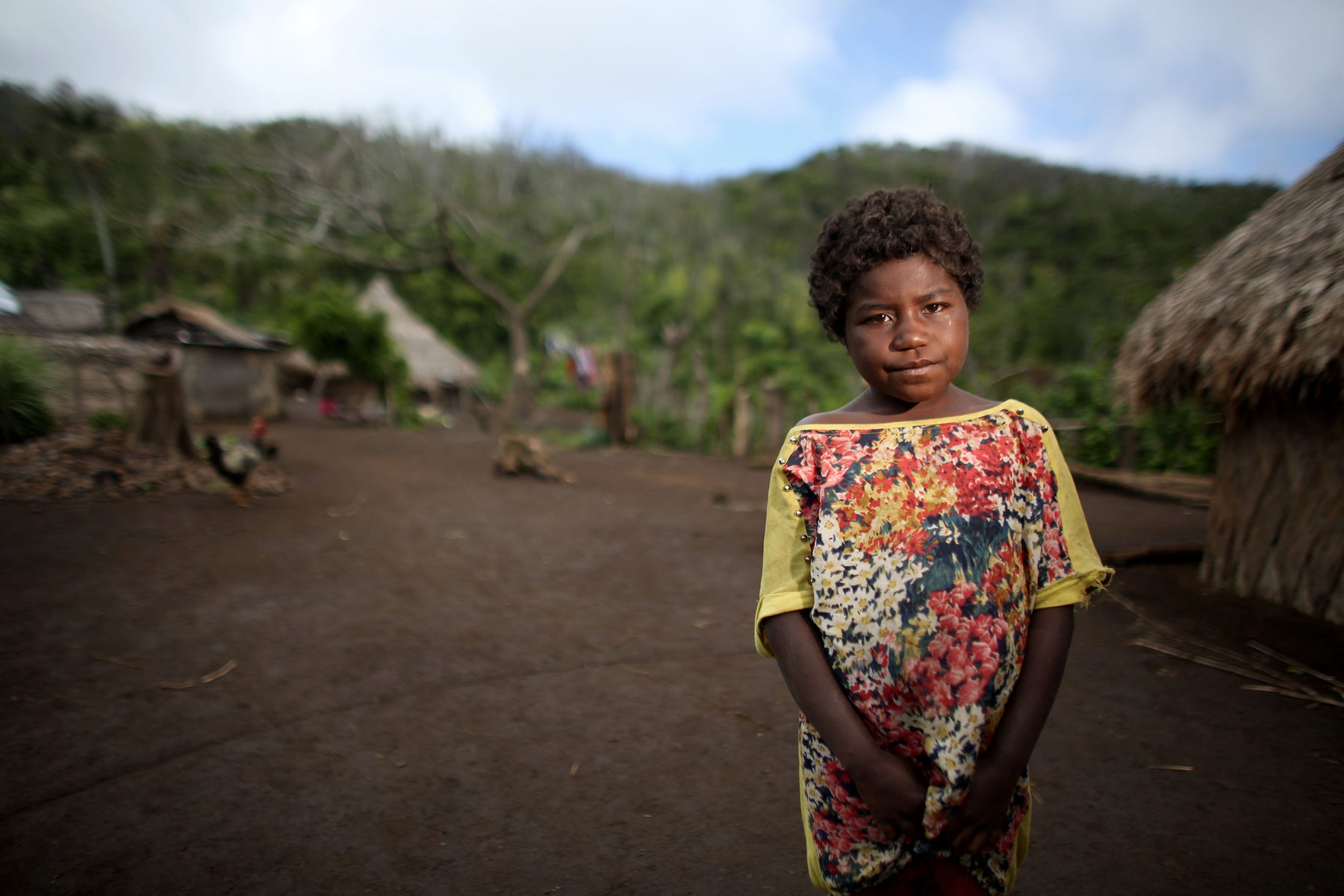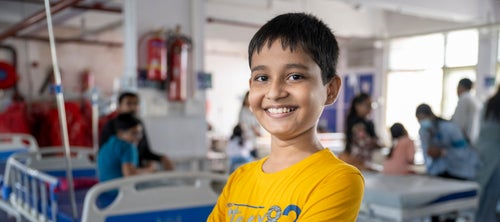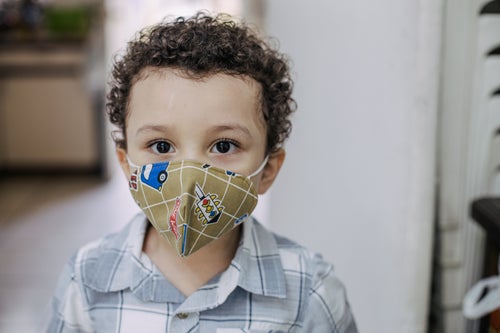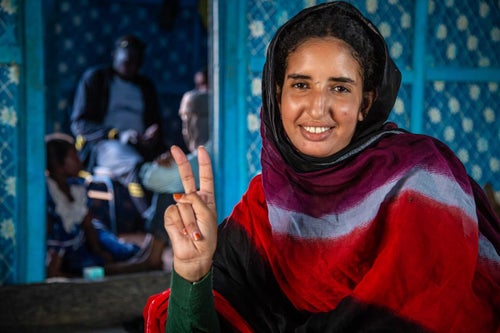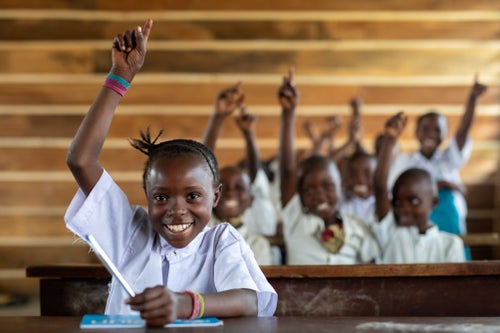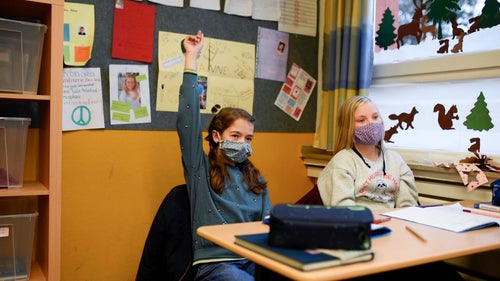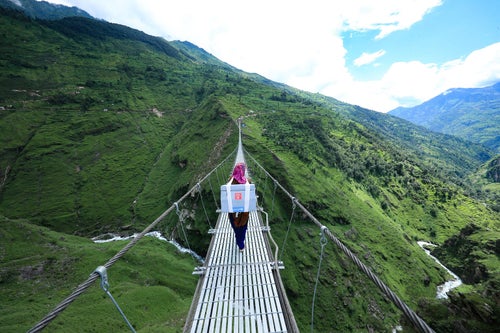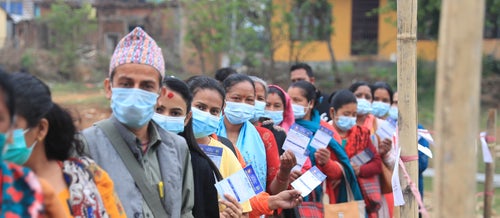Content warning: this blog discusses how COVID-19 is impacting women, girls and gender equality in the Asia Pacific, including gender-based violence. If you need support, please contact 1800RESPECT.
Coronavirus doesn’t discriminate against gender, race or international borders. Wherever we are in the world, we are all impacted by this pandemic.
But existing gender inequalities, norms and vulnerabilities mean the impacts of COVID-19 on girls and women will leave them further behind if we don’t address these issues now.
We have made great progress in achieving gender equality over the past 25 years, but we’ve found that these gains are not uniform across regions and countries, particularly for adolescent girls. We can’t risk these being undone.
There is no time more important than this to understand how women and girls face different impacts to COVID-19.
"In most cultures, the bulk of home responsibilities falls on the woman - even if both partners are working."
1. Healthcare and domestic workers
Globally, women make up 70 per cent of the frontline healthcare workforce. Not only does this increase their risk of infection, but it also leaves women more vulnerable to abuse, intimidation and harassment at times of uncertainty and stress - like the current pandemic.
In Timor-Leste, nurses and midwives are predominantly women. With schools closed across the country, many mothers are reorganising their schedules and covering each other’s shifts in order to care for their children.
“Women are definitely affected,” says Gaurav Sharma, UNICEF Timor-Leste Health Manager.
“In most cultures, the bulk of home responsibilities fall on the woman - even if both partners are working.”
Globally, women and girls also make up the vast majority of other frontline workers including cleaners, laundry and catering workers as well as domestic migrant workers. These roles tend to be short-term, part-time or casual contracts without access to protective measures such as health benefits or superannuation. These are significant power imbalances that put many women and girls at particular physical, emotional and financial risk.
On top of this, women around the world are also dealing with the challenges of menstruation while working long hours with infrequent bathroom breaks and shortages in menstrual hygiene products. This points to a lack of understanding and consideration of what female workers need, despite making up the majority of the workforce.
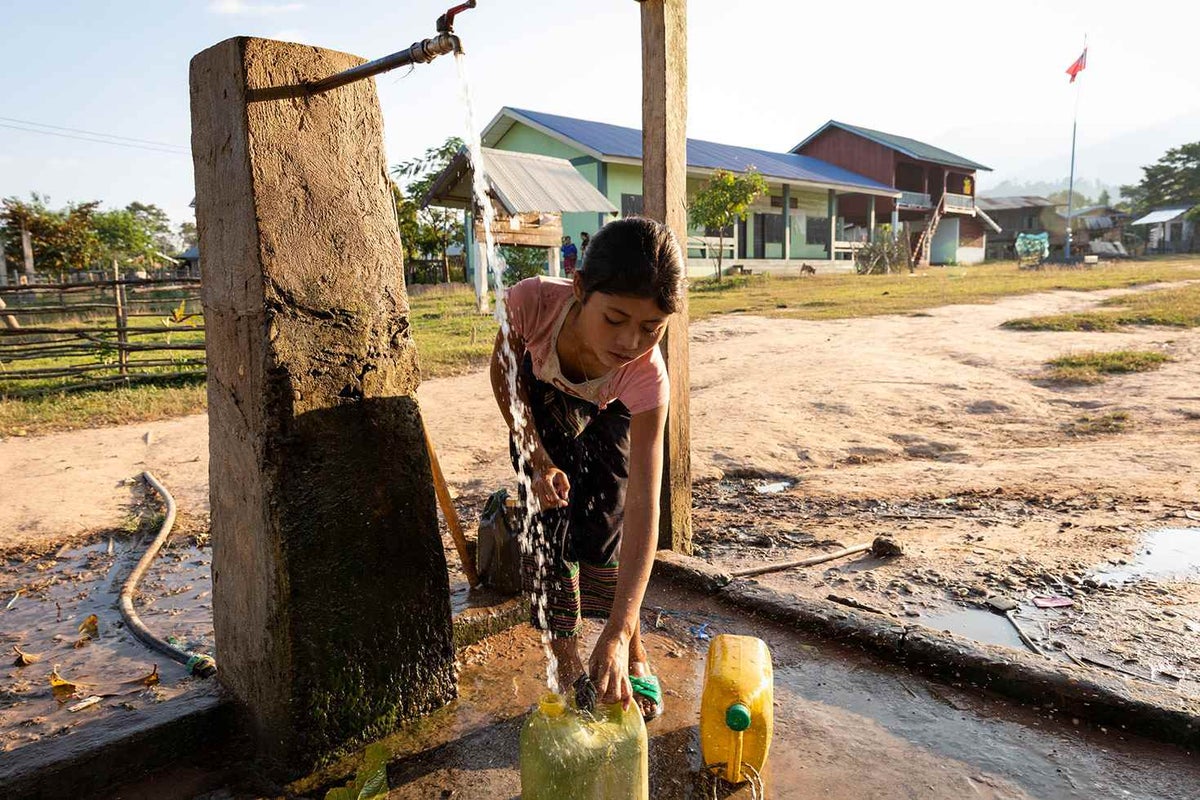
2. Education versus social responsibilities
Women and girls are commonly overburdened with unpaid and invisible care work - leaving many girls out of school and without an education.
While some gains have been made, in the Asia Pacific 14 million more girls are now in primary school since 1998, access to quality education is not equal across the world, with millions of girls struggling to gain the skills they need for a productive and fulfilling life.
Adolescent girls are also more likely to not be in employment, education or training compared to boys - a gap which shows how girls and women are often allocated unpaid domestic and care work while both boys and men receive paid work.
In Timor-Leste, girls and women are four to five times more likely to collect water and take on caregiving responsibilities for sick family members than boys and men.
In previous health emergencies, school closures have led to millions of adolescent girls dropping out of school before they complete their education to take on household caring responsibilities - especially those living in poverty, with disabilities or living in rural and isolated areas. Many will never return to school.
For girls, being out of school isolates them from their support systems - their peers, teachers and help networks. During crises or disasters, girls also tend to be exposed to higher rates of gender-based violence, without normal community protection.
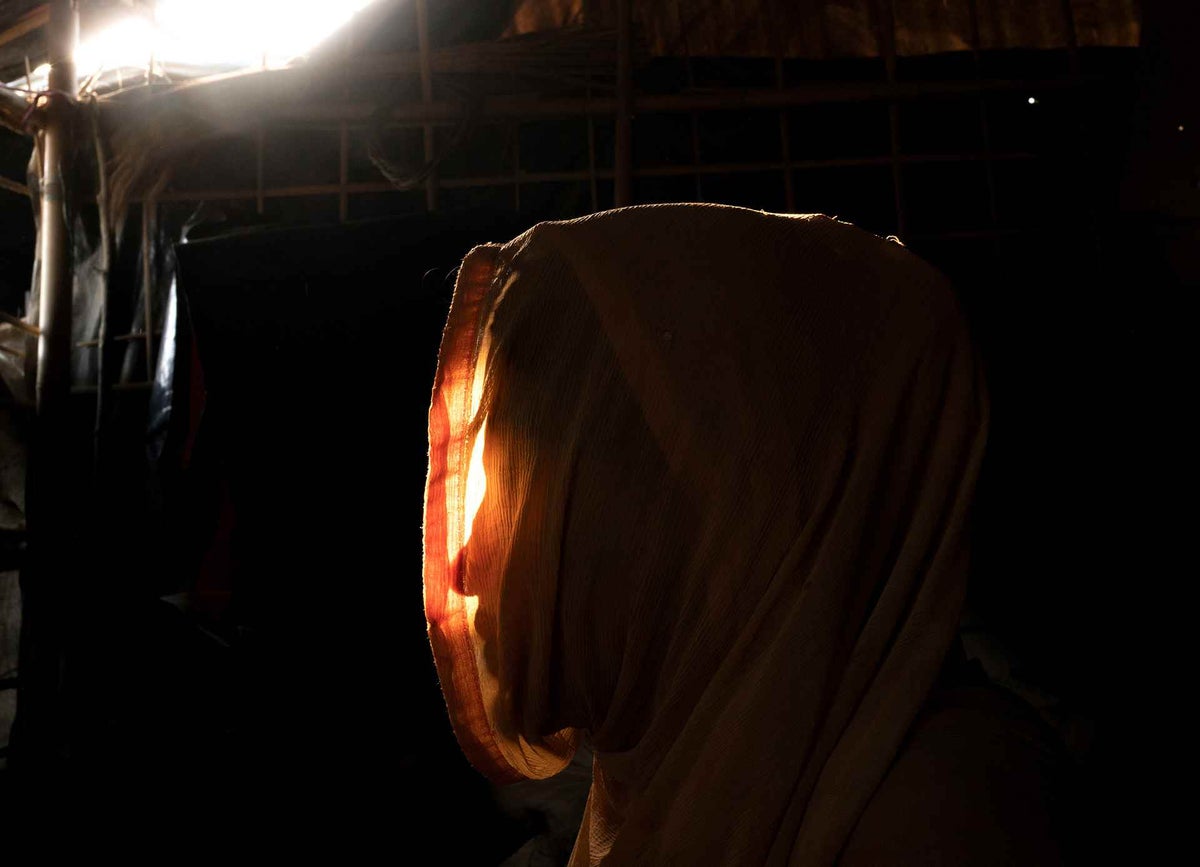
3. Gender-based violence
Coronavirus has also put women and girls at greater risk of gender-based violence. With movement and social restrictions in place, many are confined and spending increased time with their abuser.
They also have limited access to safe spaces to seek out help services. Emerging data shows that since the outbreak of COVID-19, violence has intensified for women and adolescent girls in intimate partner relationships, with surges being reported of upwards of 25 per cent in countries with reporting systems in place. Embarrassment, fear of retaliation, economic dependency and societal norms are all factors which can be barriers to women and girls feeling safe in reporting incidents.
On top of this, COVID-19 has closed many support services which are often already under-resourced. In some countries, mobile phone and internet access is not always accessible to women and girls - especially in more rural and remote areas. Globally, boys are 1.5 times more likely to own a mobile phone than girls.
Not only does this hinder girls from accessing accurate information, but it prevents them from staying connected to their support systems and limits where they can go to for help. This is especially concerning for places with already high rates of violence - like Papua New Guinea (PNG).
PNG has been reported as one of the most dangerous places in the world to be a woman, with over two-thirds of women estimated to have suffered some form of physical or sexual violence in their lifetime.
Sister Edith Namba, supervisor of the family support service clinic in Port Moresby, says around 30 women a day come to the centre. During festive seasons like Christmas and Easter or during elections - that number increases.
“When the facility was first established, most of the cases were to do with physical violence, but now it is turning out to be sexual violence as the number one reason why women, children and families come to the centre,” Edith says.
In PNG, many regions do not have support centres and for those that do, women often do not feel safe attending services in their communities. Instead, they will often travel to other provinces (some almost 300km away) to seek help, an option which is much less viable in today’s pandemic context, leaving women and girls with limited access to crucial services.
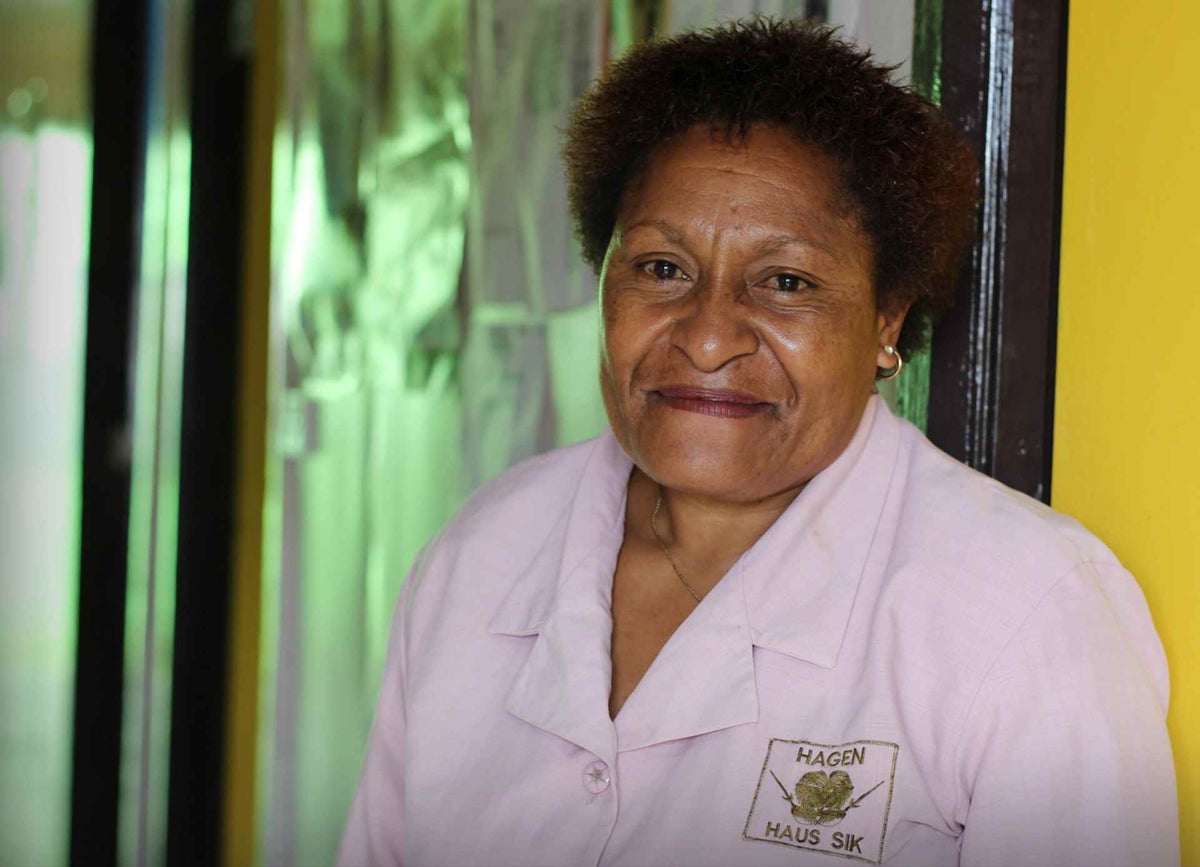
4. Overwhelmed health services and dwindling supplies
In the current health emergency, funding and resources are likely to be diverted from routine healthcare and prioritised to end the pandemic. This can have devastating impacts for women and girls especially in already underfunded areas such as services for gender-based violence, sexual health such as HIV/AIDs treatment, and reproductive health - like attended childbirth.
Even without a global pandemic, pregnant adolescent girls face higher health risks including anaemia and big barriers to reproductive healthcare, including financial, mobility restrictions, poor quality of services due to inadequate investment and cultural norms.
These barriers are linked to a high rate of maternal mortality in the Pacific, Papua New Guinea, Laos and Timor-Leste. During a pandemic, there are even bigger barriers in accessing these health services.
This has created further challenges especially for women and girls in lower socio-economic areas who aren’t necessarily able to afford to buy multiple months’ worth of supplies.
These challenges may affect and disadvantage women and girls for years to come, and undo the progress we are continuing to make with achieving gender equality.
This is as important in Australia, as it is in our neighbouring countries in the Asia Pacific region like Timor-Leste, Laos, Papua New Guinea and the Pacific Islands. That’s why UNICEF Australia continues to work on the ground in our region to respond to COVID-19’s impacts as well as other challenges in Child Survival, Early Childhood Development, Child Protection and Water, Sanitation and Hygiene (WASH).
Now more than ever we must work to leave no child behind.
Five actions for gender equality in the COVID-19 response:
- Care for caregivers
- Prepare for increases in gender-based violence. Recognise the social welfare workforce as essential workers to enable protection services for vulnerable women and girls
- Maintain core health and education services and systems
- Engage existing women’s and youth rights networks to support connectivity and vital information flow
- Ensure gender data is available, analysed and actionable
Related articles
Stay up-to-date on UNICEF's work in Australia and around the world



